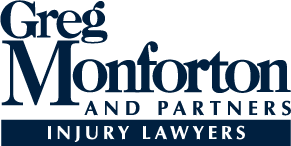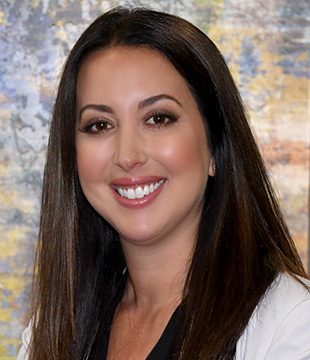 If you suspect that your loved one was a victim of neglect or abuse in a nursing home, we encourage you to contact a qualified lawyer as soon as possible. You may be able to recover compensation for the financial, physical and emotional damages your loved one has suffered.
If you suspect that your loved one was a victim of neglect or abuse in a nursing home, we encourage you to contact a qualified lawyer as soon as possible. You may be able to recover compensation for the financial, physical and emotional damages your loved one has suffered.
At Greg Monforton & Partners, we have more than 30 years of litigation experience, and we are dedicated to holding at-fault parties accountable for their acts of abuse and neglect. If we represent your loved one, we are prepared to pursue the maximum amount of compensation available. Founder Greg Monforton has been selected for Best Lawyers in Canada each year since 2006 and is a Law Society of Upper Canada Certified Specialist in Civil Litigation.
Call today to schedule a completely free and confidential consultation to discuss your claim. If we find you have grounds for a case and you hire our firm, there are no upfront costs or lawyer fees while we work on your case. We accept these cases on contingency, so we only collect payment if we obtain compensation on your behalf.
Greg Monforton & Partners. Free Consultation. Call (866) 320-4770
Get Your Free Case Evaluation today!
At Greg Monforton & Partners, we only get paid when we obtain a recovery on your behalf.
Am I Eligible to File a Case?
Nursing home abuse or neglect cases are unique and often complex. To determine whether you may have a viable case, your lawyer will need to understand more about your loved one’s situation. This is something that we can discuss in the free legal consultation that we offer. To answer your questions about eligibility, we will need more information, such as:
- The incidents and injuries that caused harm to your family member
- Whether your loved one suffers from any physical or mental limitations
- Whether the care home – or caregiver – has any known history of abuse or neglect
- The general appearance of your loved one’s environment
- What staffing conditions are generally, such as if the facility is frequently short-handed
- Any other information or evidence that may be helpful
If you have concerns about your family member’s immediate well-being, we encourage you to report the incident, without delay, to facility administrators as well as local authorities.
Contact our firm for legal help today. (866) 320-4770
What Compensation May Be Available?
The compensation that may be available is largely dependent on the type and severity of the injuries and other damages that your loved one sustained. There are no guaranteed outcomes in any legal case, but generally, you may be eligible to receive compensation for:
- Pecuniary Damages: These are easily quantified damages related to an injury or accident, such as bills for surgical interventions, doctor visits, physical therapy, emergency transportation and hospital visits
- Non-Pecuniary Damages: These damages are harder to place a value on. They can include emotional trauma, disfigurement, post-traumatic stress disorder (PTSD), depression, anxiety, loss of enjoyment of life and more.
If you plan on pursuing compensation in a nursing home abuse or neglect claim, you, or your solicitor, will need to establish evidence of the nursing home’s wrongdoing. Therefore, we strongly recommend that you speak with an experienced lawyer at our firm. During the free case review that we offer, we can answer any questions you may have about the legal process. After this meeting, you may hire our services.
How May a Windsor Nursing Home Abuse Lawyer Benefit My Claim?
Those who hire a lawyer to handle their claim often have better results, and receive more compensation, compared to those who do not.
If we represent you, we are prepared to:
- Thoroughly investigate the incident(s) that caused your loved one to suffer harm
- Gather evidence to support your claim
- Communicate with third parties and witnesses on your behalf
- Keep you informed about the status of your claim
- Work with additional outside resources when needed
- Determine the value of your case
- Represent you in a court trial if necessary
What Rights Do Nursing Home Residents Have in Ontario?
Administrators of nursing homes and other long-term care facilities are required to uphold and respect the rights of every resident under their care. This includes, but is not limited to, protecting every resident’s right to:
- Be treated with respect, dignity and courtesy
- Be safe and protected from any form of abuse
- Receive care for his or her well-being and not be neglected by the facility’s administrators and/or care staff
- Be properly fed, sheltered, groomed and cared for according to his or her specific needs
- Live in a clean and safe environment
- Exercise his or her rights as a citizen
- Be informed about who will be responsible for providing his or her direct care
- Privacy while being treated or while receiving routine care for his or her daily needs
- Fully participate in decisions regarding his or her plan of care, including admissions and discharges
- Grant or refuse any treatment or care prescribed on his or her behalf
- Not be forcibly restrained, except under limited circumstances as defined by the law
Nursing homes are required to adhere to these, and all other patient protections as defined under Ontario’s Residents’ Bill of Rights. Our lawyers have extensive knowledge of these and other laws that may apply to your situation. We have been advocating on behalf of nursing home residents and other injured victims in Ontario for more than 30 years. Our firm is dedicated to pursuing justice on behalf of those who cannot speak for themselves and holding negligent or abusive parties accountable for their actions.
Call our firm at (866) 320-4770 today to schedule your free consultation.
Why Choose Greg Monforton & Partners?
Discover the successful resolutions our firm has achieved for clients across various legal matters in our detailed case results section.
$300+
MILLION RECOVERED
Greg Monforton and Partners has recovered over $300 million for clients who have suffered injuries or losses due to the negligent actions of others.
5
STAR RATED
Our firm has earned a 5-star rating for our commitment to excellence in legal representation and client satisfaction.
40+
YEARS IN BUSINESS
With over nine years of experience in the legal industry, Greg Monforton & Partners brings seasoned expertise and a proven track record of success to every case we handle.
Who May Be Liable for Nursing Home Abuse or Neglect?
There are several parties who may be held liable when a nursing home resident sustains injuries due to abuse or neglect. These long-term care facilities owe a duty to the residents and their families to take reasonable measures to ensure that each resident receives proper care and is safe from harm.
When a nursing home fails in its duty, those who may be liable include:
The Long-Term Care Facility
If a nursing home is negligent in upholding its duty to provide a safe and healthy environment for your loved one and other residents in its care, then it may be liable for the injuries and losses caused by that negligence. Specific negligence that may apply in a nursing home abuse or neglect claim includes:
- Negligent hiring practices, such as not hiring enough staff or not properly training caregivers
- Insufficient background checks to identify candidates with a violent or criminal background
- Neglecting to provide adequate care to prevent bed sores and other injuries caused by neglect
- Not hiring enough staff
- Medication errors
- Causing residents to suffer from malnutrition or dehydration due to substandard care
- Poor supervision of staff
- Insufficient security
Staff and Direct Caregivers
Any individual who fails to provide the acceptable standard of care to a nursing home resident, including doctors, nursing staff, nutritionists, physical therapists and other caregivers could be liable for abuse or neglect.
Get a Free
Case Evaluation
"*" indicates required fields
Third Party Visitors or Workers
Third-party visitors, such as a contracted worker or other visitor, who gain access to a patient and purposely cause them harm may be held liable, along with the nursing home.
Detecting Signs of Nursing Home Abuse or Neglect
 It can be easy for family members to miss signs of abuse or neglect, especially if they are unable to see or visit their loved one with any regularity. Unfortunately, nursing home abuse or neglect happens in various ways. Often, a nursing home resident may be unwilling to communicate what has happened. These fragile victims may be too afraid to speak up for fear of making their situation worse. In other cases, the victims may sometimes have dementia or other mental limitations that keep them from being able to talk about their situation, and those that do speak up, may not be believed for the same reason.
It can be easy for family members to miss signs of abuse or neglect, especially if they are unable to see or visit their loved one with any regularity. Unfortunately, nursing home abuse or neglect happens in various ways. Often, a nursing home resident may be unwilling to communicate what has happened. These fragile victims may be too afraid to speak up for fear of making their situation worse. In other cases, the victims may sometimes have dementia or other mental limitations that keep them from being able to talk about their situation, and those that do speak up, may not be believed for the same reason.
If your loved one is a resident in a nursing home or other long-term care facility, be alert for these common signs of abuse and neglect:
Neglect
Your loved one may be suffering from neglect if he or she exhibits symptoms that include:
- Pressure sores
- Constant lack of personal hygiene
- Sudden loss of weight
- Recurring infections
- Dehydration
- Side effects resulting from medication errors
Physical Abuse
Any time your loved one experiences injury or pain due to physical harm that was inflicted by a caregiver, staff member, visitor or another resident, such as pinching, biting, kicking, slapping or punching, he or she may display:
- Frequent and severe bruising (be aware these could be covered by long sleeves or clothing)
- Sprains or strains
- Unexplained cuts or fractures
- Head injuries, including a concussion or traumatic brain injury
Additionally, those who have been abused on one or more occasions may become uncharacteristically anxious, depressed, fearful and withdrawn.
Emotional or Psychological Abuse
When an elderly person is deliberately humiliated, bullied, publicly harassed or isolated by caregivers, he or she may exhibit:
- Depression
- Emotional withdrawal
- Loss of appetite
- An unwillingness to participate in social activities
- Sudden onset of atypical behaviour, such as thumb sucking, body rocking or mumbling things that make no sense
Get Your Free Case Evaluation today!
At Greg Monforton & Partners, we only get paid when we obtain a recovery on your behalf.
Sexual Abuse
The most heinous of all nursing home abuse is when a family member is forced to engage in any non-consensual sexual act. This can result in physical, emotional and psychological damage that many victims may never fully recover from. Forms of sexual abuse may include:
- Forced sexual contact, including rape, anal or oral sex
- Non-consensual touching to intimate areas that include, breasts or genital areas
- Forcing the victim to remove his or her clothes
- Forcing a resident to observe pornography
- Taking any invasive or sexually explicit photos, videos or audio recordings of a resident while they are bathing, dressing or in other intimate or explicit settings and then distributing them online or to others in person
Signs that someone may have suffered one or more acts of sexual abuse include:
- A sudden or atypical inability to sit or walk without pain
- Spotting or bleeding that is unrelated to any other injury or condition
- Torn or bloody undergarments
- Pelvic injuries
- A sudden onset of panic attacks
- Becoming emotionally withdrawn or suffering from depression
- Recurring urinary tract infections
- Severe bruising on the arms, legs, breasts and genitals
Financial Fraud
Financial fraud of the elderly in nursing homes is a type of abuse that may be committed by various parties involved in your loved one’s care. Commonly, this type of abuse may include stealing valuables or money from the resident, forging your loved one’s signature to obtain control over funds and more.
Common signs of financial exploitation include:
- Unexplained or atypical purchases on credit card statements
- Large amounts of money suddenly being withdrawn from their bank account
- Sudden onset of multiple unpaid bills
- Multiple missing bank statements
- One or more valuable items that have gone missing
- No cash in their wallet
- Important legal documents, such as a will, that have disappeared
- Being fearful, reluctant or angry when you try to discuss their finances
- Feeling anxious or depressed
At Greg Monforton & Partners, we only get paid when we obtain a recovery on your behalf.


How Do I Report Suspected Nursing Home Abuse?
If you have immediate concerns for your family member’s welfare, you should call 9-1-1 or call the appropriate local authorities.
In Ontario, you must report any suspicious or known incidents of harm that your family member or any other resident may have suffered. This is the law even if you are a visitor of the home and you discovered someone other than your loved one is being harmed. Only other residents living in the home do not have to report suspicious behaviour.
To report suspicions that your loved one or another resident has been a victim of abuse or neglect, call:
- Director at the Ministry of Health and Long-Term Care: The toll-free ACTION line is 1-866-434-0144 and is answered seven days a week between the hours of 8:30 a.m. and 7:00 p.m. for residents living in a long-term care home, nursing home or a home for the aged.
- Registrar of the Retirement Homes Regulatory Authority: Call 1-855-275-7472 for residents who live in a retirement home.
- The Director or the Registrar are required by law to send an inspector to investigate all reports of abuse.
In Ontario, it is important to note that if you intend to pursue a legal claim, you have just two years from the date of the incident or injury. In addition to the limitation period, there are other deadlines that must be met, so we encourage you to seek legal help as soon as possible.
Contact Our Windsor Nursing Home Abuse Lawyers Today
 Greg Monforton & Partners represents victims and families who have been impacted by nursing home abuse and neglect. Our most vulnerable citizens should not be taken advantage of. Although a lawsuit cannot undo the pain and suffering inflicted on your family, it can help to bring justice to those responsible for committing heinous acts.
Greg Monforton & Partners represents victims and families who have been impacted by nursing home abuse and neglect. Our most vulnerable citizens should not be taken advantage of. Although a lawsuit cannot undo the pain and suffering inflicted on your family, it can help to bring justice to those responsible for committing heinous acts.
If we represent you, the experienced lawyers at our firm are prepared to manage your case throughout the legal process and fight for the maximum amount of compensation available. In more than three decades advocating for the injured in Ontario, we have obtained millions in compensation for our clients.
Contact our firm today to schedule a free review of your potential case. This meeting is completely confidential, and a free opportunity to get answers to your legal questions. There is no risk to you since there are no upfront costs or fees while we work on your case. We do not get paid unless you do.
Our Windsor office is located less than five minutes away from the Windsor Police Service Headquarters.
Free Consultation. No Upfront Costs. Call (866) 320-4770


 (866) 320-4770
(866) 320-4770 Free case review
Free case review










